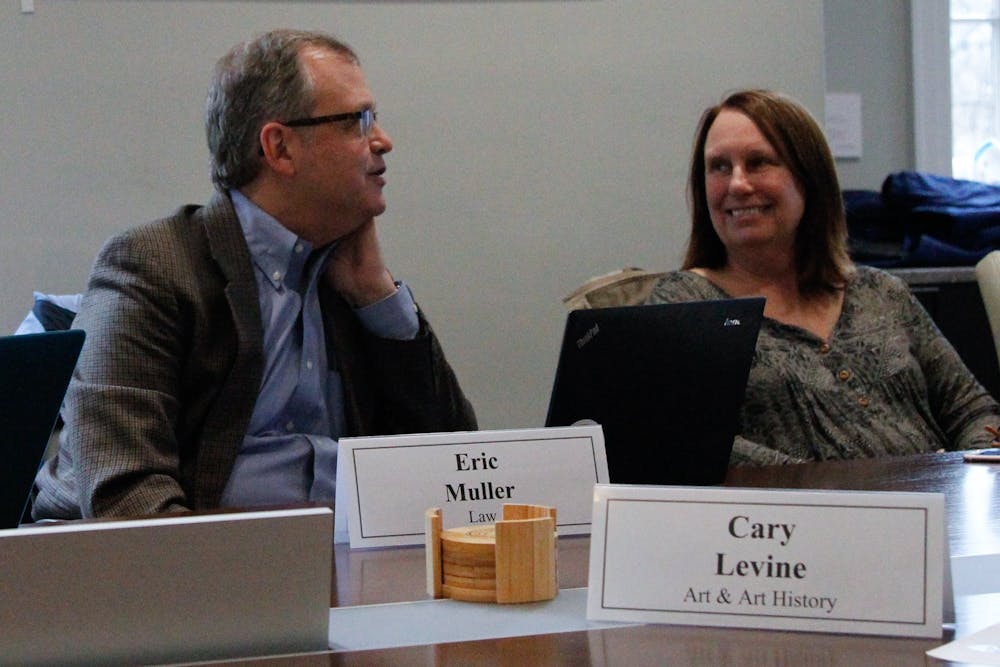Members of the Campus Safety Commission met Wednesday in Carroll Hall, where they shared their thoughts on the recent rise of anti-Semitism on campus. North Carolina Hillel Campus Director Michelle Brownstein Horowitz attended the meeting to lead the discussion.
“It’s become increasingly disturbing,” Horowitz said, referring to anti-Semitism on campus. “And we are starting to hear from admitted students who feel like, perhaps, Carolina is not a place that they would feel safe.”
Eric Muller, a UNC law professor, said he has noticed a culture of doubt and disbelief regarding the claims of Jewish students and faculty members on campus who report experiences of exclusion. He said this doubt would never accompany the claims of members of other minority groups.
“If something happens on this campus that might be seen as being homophobic, there is a culture here, I think very appropriately, that we believe their experience,” Muller said. “We don’t argue with them.”
Muller also said attempting to create an experience of comfort and safety for one group often spills over into creating an environment that is uncomfortable or unsafe to another group.
“Targeting a goal of comfort and safety to all people is absolutely what we need to do, but also complicated,” Muller said.
He said there are differences between how people interpret what a sense of belonging and safety means. This, Muller said, represents the difficulty of trying to create an inclusive environment for students on campus.
Horowitz weighed in, saying that before solutions can be proposed to deal with anti-Semitism on campus, a line needs to be drawn between free speech and anti-Semitism.
“There needs to be some sort of understanding of the University and the accepting of a definition of anti-Semitism," she said. "There are a number of them out there that actually specifically define, ‘What is the line?’”



